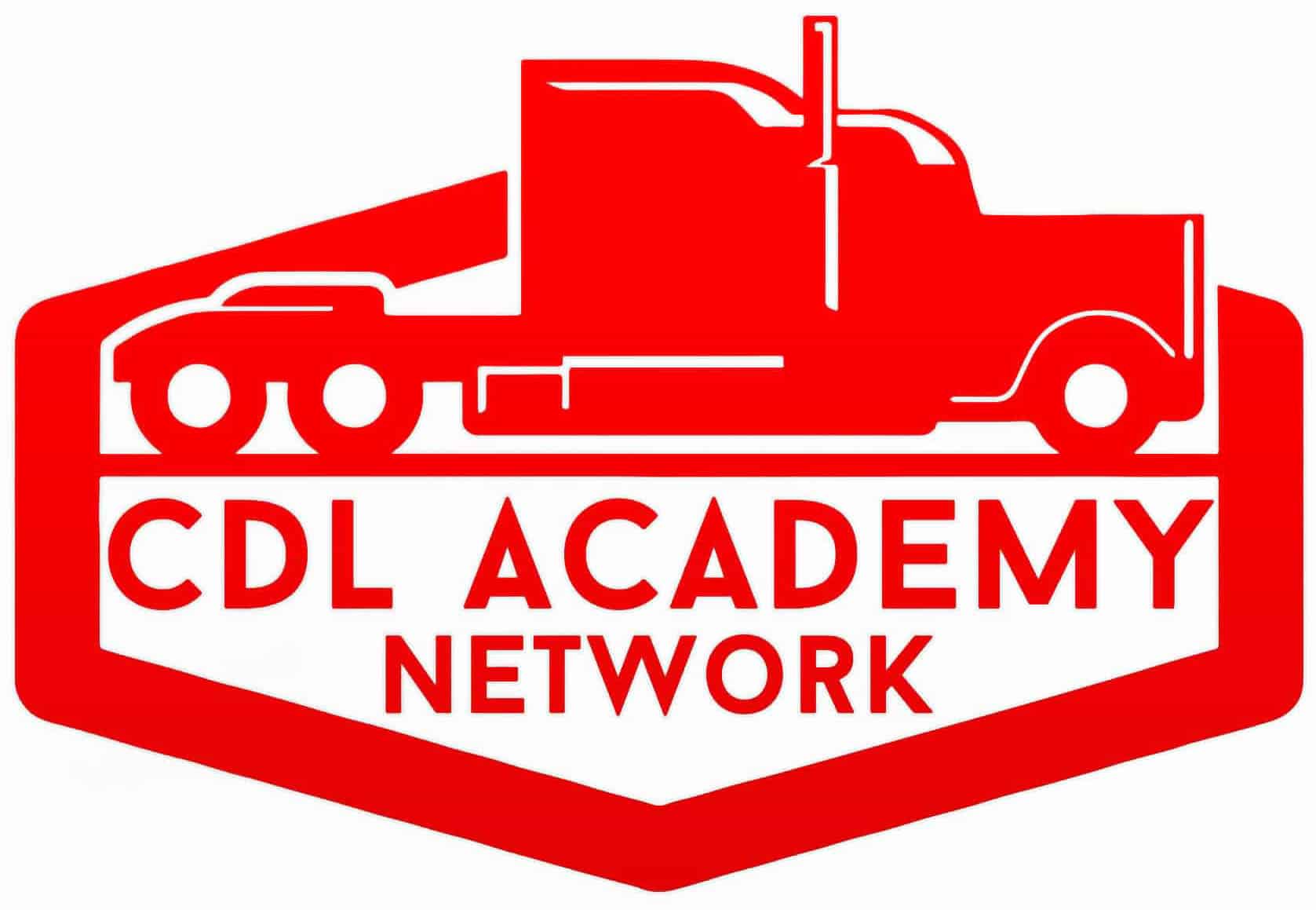Have you ever thought about starting your own trucking company? What does that entail? The first step to becoming a private fleet owner is to understand some industry basics that set you apart from commercial truck drivers. Discover whether it’s right for you, and how you can get started.
Trucking plays a crucial role in the economy. In the US, trucks transport 70 percent of cargo.
As a result, savvy business people can launch trucking companies and benefit from high freight rates as shipping demands increase.
Starting a trucking company may seem expensive at first, but it is easier to secure the cooperation of investors and lenders with a good business plan. In the beginning, it’s wise to start small, especially if you won’t be able to rely on your savings, and then grow your business as your sales increase.
In order to make money in the trucking industry, you should gain as much knowledge as possible.
Successful trucking companies are influenced by many factors, but drivers are a key component. There has historically been a shortage of drivers in the industry, and it has gotten worse as many experienced drivers are beginning to retire. For a trucking company to succeed, it is essential to hire competent and hard-working drivers.
A good understanding of the industry is essential to adapting, surviving the early stage, and seeing your company thrive.
Beginning a Trucking Business: The Basics
Getting started with your own successful business can be a big opportunity. The trucking industry is one of the most lucrative in terms of profits, but it is also one of the most competitive.
 The majority of people believe that all trucking companies are the same, but that’s not true. The first step is to determine precisely what role your company will play.
The majority of people believe that all trucking companies are the same, but that’s not true. The first step is to determine precisely what role your company will play.
For-hire truckload carriers are one type of company. A truck like this essentially transports the freight of another company. Logistics and supply chain management are essential to many companies. Truckload carriers are hired by companies to transport their products. Depending on what your business partners ask for in terms of freight and contract terms, your business model will change constantly. A client, in this case the company, may allow other trucking companies to bid on the contract once it reaches maturity. Consequently, freight availability and nature are subject to change, and having multiple customers protects you against loss.
Intermodal carriers transport freight from and to railroad yards. There are three steps involved in moving a load: a truck delivers the load to the rail yard, the load is transported by rail, and finally, a truck then picks up the load at the rail yard and delivers it to its final destination.
Trucking Market Research and Competitive Analysis
Market research will enhance your business’s viability, and competitive analysis will help you determine how to distinguish your company. In order for a company to succeed, market research and competitive analysis are both crucial.
Economic trends and client behavior are heavily considered in market research. In order to meet customer needs, these steps can give you ideas for improving your product.
Determining Start-Up Cost for your Trucking Company
If you jump into the trucking industry without taking sound financial advice, your odds of failing are high. One of the main challenges of getting into the industry is the initial cost and the operation cost required. Start-up costs are affected by various factors like the freight you haul, the equipment you buy, the routes you operate, and whether you lease or own your trucks.
Fixed Costs
This is what the company pays whether it hauls freight or not. Among them are truck payments, staff wages, and insurance premiums. When writing your plan, make sure to include any fixed costs to calculate your monthly overhead.
Equipment payments
It is obvious that truck payments will vary depending on the model. In most cases, people are not able to pay the full amount upfront for a truck. Most commercial truck dealers will require a down payment, but the exact amount depends on your credit score. If you have a strong credit score, you may be entitled to lower down costs and monthly payments.
Trucking Company Insurance
The cost of insurance may be influenced by factors such as the freight, the driver’s age, his/her safety record, the truck’s model, its age, and the areas of operation. When you get the estimate for your insurance, You may give a down payment and then pay the rest in ten installments.
Permit and Licenses
To operate your business, you will need a variety of licenses and permits. Renewal fees are required for these permits and licenses.
You must therefore save documents such as BOC-3 filings, Fuel Tax filings, UCR filings, and Heavy Vehicle Use Taxes. It can be difficult for some business owners to keep track of the records that need to be renewed, which may have legal repercussions.
- If you plan to be an owner-operator, you must have a valid CDL (Commercial Driver’s License). It’s important that you comply with the FMCSA (Federal Motor Carrier Safety Administration) regulations.
- You will need a US Department of Transportation (DOT) number and a Motor Carrier Authority Number (MCAN). You can track your safety records and regulatory compliance with the USDOT number. MC numbers (also called operating authority numbers) identify your trucking company and the cargo you can transport.
- You must register your trucking business with the FMCSA in order to obtain these numbers.
- Obtain your USDOT and MC numbers after receiving trucking insurance and registering with UCR.
- The International Registration Plan (IRP) License Plate allows your business to operate in all 50 states and most Canadian provinces as long as it comes from your home state. This license plate must be
 renewed annually.
renewed annually.- Your business can obtain one IFTA (International Fuel Tax Agreement) permit with this permit and you must file fuel tax returns in the state where it is based four times a year.
- In addition to the permits and forms I mentioned, you will need a few more depending on where you plan to drive and what goods you intend to carry. If you are interested in learning more, the FMCSA website is a great resource.
Variable Costs for Trucking Companies
Your truck’s operating costs are considered variable. In addition to fuel and maintenance, repairs are also included. Changing economic and environmental conditions affect these prices, so they are not fixed.
Your Trucking Company Office
Although you can run your trucking company from home, setting up an office might be a good idea for professional purposes. Customer visits are more likely at your office than at your home, so it makes sense that they’d prefer to visit you there rather than at your house. Parking should also be available when looking for an office, so you won’t have to worry about trucks clogging your driveway.
Trucking Marketing and Networking
It is imperative for every company, regardless of profitability, to have a serious marketing plan. It’s highly competitive in the trucking industry, and there are many alternatives to your service. To increase brand awareness and customer base, find a great marketing service to work with that is able to scale with you as you grow.
Start with one or more of primary customers
It is important to have repeat customers in order for a trucking business to succeed. Make sure you identify dependable customers before opening your company. Having no customers for your trucking business after spending a fortune on setting it up could be devastating.
Have enough operating capital
In the absence of sufficient operating capital, your business operations would be at risk, and thus your reputation would be damaged. Often, people think they’ll make money easily after starting out, but that’s not always the case. To make money in the trucking industry, you need momentum, which takes time. It is ideal for your business to have about four months’ worth of operating capital.
Start small
Don’t overwork yourself, take on too much debt, or take on too much risk. The business should be started small and scaled as revenue increases.
Get professional advice
Make sure you stick with the experts. Avoid costly mistakes by working with experienced accountants and lawyers.
How Do Trucking Companies Work?
The ability to adapt is key to success in any industry. As well as freight brokers and shippers, contacts can be a good source of business opportunities. Freight processes are carefully monitored. Freight must be tracked and drivers must have the necessary paperwork. In addition to drivers, mechanics, dispatchers, safety directors, and salespeople play an equally important role in the trucking industry.
It is possible to make your truck all-purpose or niche-specific. For instance, some trucking companies transport food products, chemicals, household goods, etc.
If you align your truck to a certain niche, you will be able to promote trust and expertise as opposed to grabbing every opportunity. When you specialize in a certain niche, you can better develop relationships with your customers.
For new owners-operators, finding loads is the biggest challenge. Especially if you are new to the trucking industry, finding customers can be challenging. Many trucking companies close because of an inability to find consistent loads. So, what is the best way to find loads?
It’s great to have load boards, but you shouldn’t stop there. Having repeat customers in the trucking industry is the key to success, and relationships are the key to having repeat customers. Getting loyal customers is an uphill task because customers are spoilt for choice. However, if you combine great pricing and quality service, you are bound to attract loyal customers.
Load Board
These are online platforms where brokers, shippers, and carriers can post loads and advertise their services. Shippers and carriers can find one another on these boards, make a deal, and facilitate freight movement.
The site also offers carriers and freight brokers more services, such as posting loads and searching for loads according to unique criteria.
Trucking companies require a lot of patience to operate. You might experience cash flow problems because most clients and shippers may have payment terms that are longer than desirable. A factoring company can help you overcome this problem.
Factoring companies help businesses in need of cash by purchasing their accounts receivable at a discount. As a result, it’s much easier to obtain urgent cash for things such as fuel and maintenance, and, more importantly, to expand your business.
Freight bill factoring is an option offered by many load boards, which enables carriers to pay their freight bills as quickly as they like. Fuel advances are offered by some factors by providing funding when you pick up the load. There is typically a high cost associated with fuel advances. Ideally, they are suited for freights with high profit margins.
The key to establishing a relationship with your clients is to offer them value-added products and services, or to get their contact information and to continually inquire about opportunities. In addition, you may decide to find new businesses in your area of operation that need carriers or compete with other carriers by offering them better rates.
Management Software for Trucking Companies
It can be stressful running a trucking company, especially if you are still using traditional methods. Software has simplified management thanks to technological advancements. There are a number of programs that exist to help you better manage your company. Most are available for a monthly subscription price.
The difference between brokers and direct shippers when it comes to obtaining freight
Ultimately, you must find loads to carry. In the beginning, you will have to rely on load boards for work, which is not a sustainable model. Nevertheless, if you can get in the good books of regular freight brokers or regular shippers, then you can even expand your business if you are able to get enough jobs.
In order for your trucking company to remain successful, you must only use strategies that have proven to be effective. As an owner-operator, your success lies in growing a list of shippers who can trust you.
Take advantage of technology
A direct shipper will provide you with more benefits if you reach out to them without a broker’s help. It may be possible to make a deal with shippers through platforms like DAT, PC Miller, and Truckstop. Internet marketing is also something you should consider. By advertising on websites where your potential shippers hang out, you will get their contact information, so you can contact them by email again to sell your services.
Cold Call
It is common for carriers to focus on merely the administrative side of their work, believing that if they deliver great services, clients will follow. That’s a good assumption, but there’s just one problem: there’s a lot of competition in the trucking industry. If you don’t invest in your relationship with a shipper, you won’t get constant loads from them. Obtain contact information for shippers and call them aggressively. Despite the high rejection rate, you will eventually find someone who will give you a chance.
Have An Online Presence
In most cases, when brokers don’t want to work with you, it has to do with your overall image. Licensed and high-quality carriers are preferred by serious brokers. It is possible that a shipper may abandon the broker’s services if the broker referred them to a carrier who turned out to be mediocre. Additionally, brokers don’t have time to spend the whole day chatting with you. When they go to your website, they will find all the important information, and they will make a decision quickly.
Get Great Drivers
You might be able to make the difference between your company’s success and failure by having the best drivers. Great drivers are careful not only about delivering loads, but also about their expenditures.
Finding a driver who meets your needs can be difficult, however. A constant movement of drivers is a problem in the trucking industry as they seek greener pastures. If you take the appropriate steps, you can still find a great driver despite these challenges.
How to Scale Your Business
The majority of trucking companies registered in the US are small businesses. There is no doubt that scaling up is a challenge, but there is no doubt that it is possible. Many fleet owners started from the bottom, and a large percentage of these people are now top owners. What did they do to accomplish this? How can your trucking company scale up?
Establish Financing
In order for “scaling up” to occur, trucks are needed. Money is the only thing that allows you to purchase more trucks. The money doesn’t have to be all yours in order to buy trucks. A money-lending institution can help you arrange a loan and a payment plan that works for you. In addition to purchasing new trucks, borrowed funds should also be used to improve service delivery. You can provide better services to your clients if you have more capital.
Investing borrowed money is a risky business, so you should be very careful not to drown the funds in unworthy investments. By doing so, you run the risk of driving your company into bankruptcy and ruining your finances.
Maintain a steady cash flow
Nothing is more stressful to a driver than needing money but not having enough. Drivers like this will strive to find a better company. Cash should always be available in the office at all times. As a result, you will be able to deliver services faster and be in good standing with your clients. Fuel, drivers, and repairs can be paid for when you have a steady cash flow. Additionally, you can take on more work.
Conclusion
The revenue and expense estimates in a business plan should be both realistic and ambitious. When it comes to determining a trucking company’s economic viability, an experienced hand is needed. So, if you are new to this industry, you may want to hire someone with experience.
You may have all the control when you operate as a sole proprietor, but it isn’t a prudent economic choice. The reason for this is that it exposes your personal assets to vulnerabilities. Given that you will need financing from money lending institutions, the best business structure is one that gives you limited liability.
Managing your expenses is one of the challenges of running a trucking company. Regular maintenance, repairs, and operational costs need to be paid for on a regular basis. Technology lets you track your company’s expenses and manage your fleet from one platform thanks to management software.
Rules and regulations must be observed. Regulations are extremely strict in the trucking industry. Due to the sensitive nature of their work, truckers are held to extremely high standards.
Most importantly, don’t give up! Being a business owner can be a challenge, but always keep pushing forward and believe in your vision!


